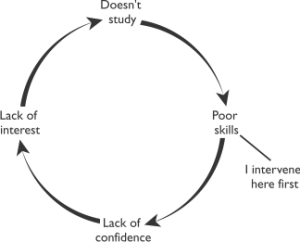Helping Teens Become Enthusiastic Independent Readers:
Strategies and Techniques
Sylvia offers a 1.25 to 1.5-hour presentation for parents and teachers on reading comprehension (“teaching kids how to read their textbooks without dying of boredom”) or on reading speed (“teaching your teen to read faster AND understand more”).
Parents will be interested in ACT prep, and both these topics fit into that interest without actually focusing on the testing. For each of these topics, Sylvia takes a couple of exercises or techniques to teach and has the parents and teachers learn them so they can use them right away with their kids. These are very simple, even obvious, exercises, so they’re easy to learn and teach. If they are used consistently over a period of several months, they really work.
Sample Strategies
For comprehension:
• Moving the hand across the page to improve visual tracking (Long Smooth Underline)
• Seeing what you read in your mind’s eye (Visualizing)
• Summarizing aloud (Tellbacks)
For reading speed:
• Long Smooth Underline
• Working toward a time goal for each page (Pacing)
Rationale
Teaching reading to older kids often gets short shrift because people assume that students already are reading as well as they are going to by the time they’re in high school—but there’s a lot that parents and teachers can do to help kids excel at reading even at that age and even if the kids currently don’t like to read and don’t read much. In Sylvia’s experience, over and over, even a few hours of the right kind of instruction and practice can turn kids into readers, or at least go a long way to get them going in the right direction. How do you start, though? Sylvia’s approach is to “intervene with skills.”
The idea is that if parents and teachers learn a few outstanding interventions or strategies to teach kids, they can start to break this cycle of failure and avoidance. The strategies are explained in detail in SMART! so that parents and teachers who want to follow through and learn more could use the book. However, the study group presentation will at least get participants started, and if that’s all they’re interested in, they will still have learned something useful.


No comments yet.